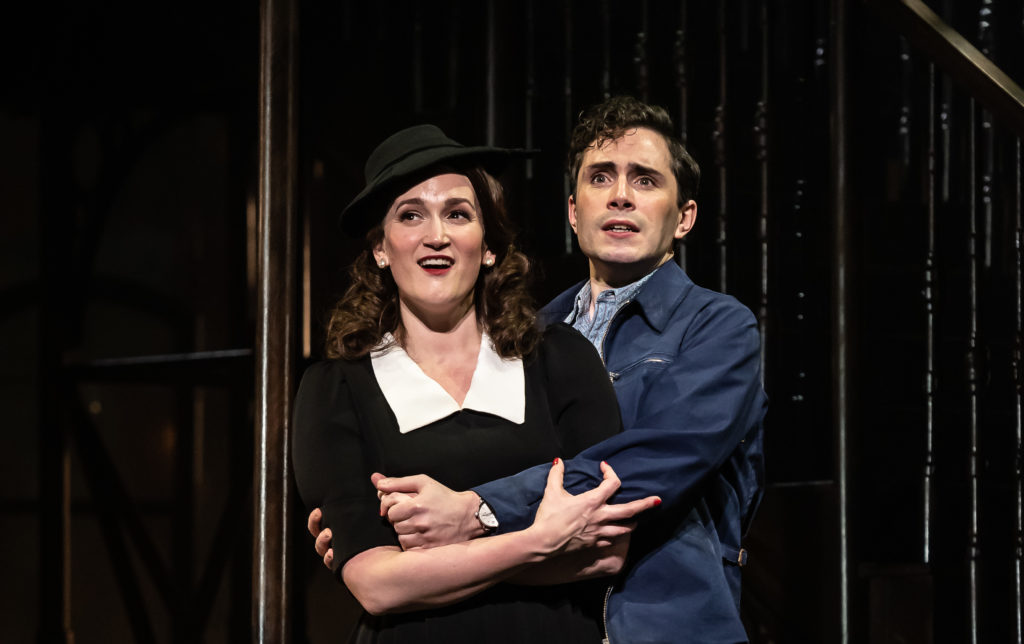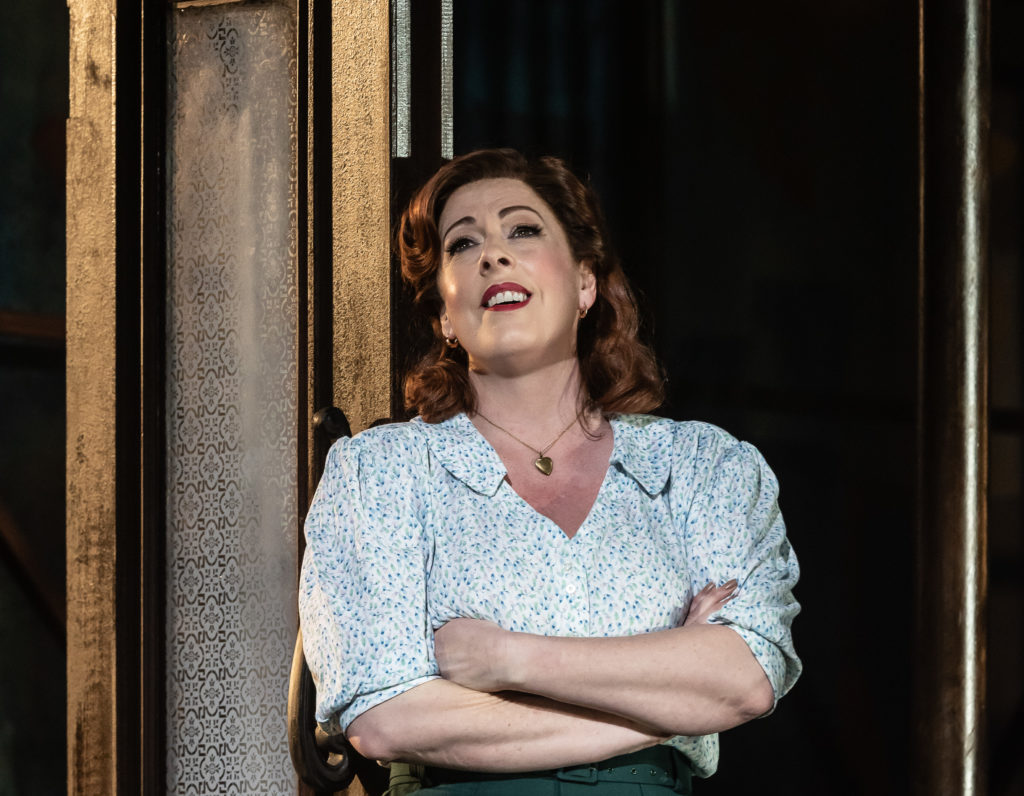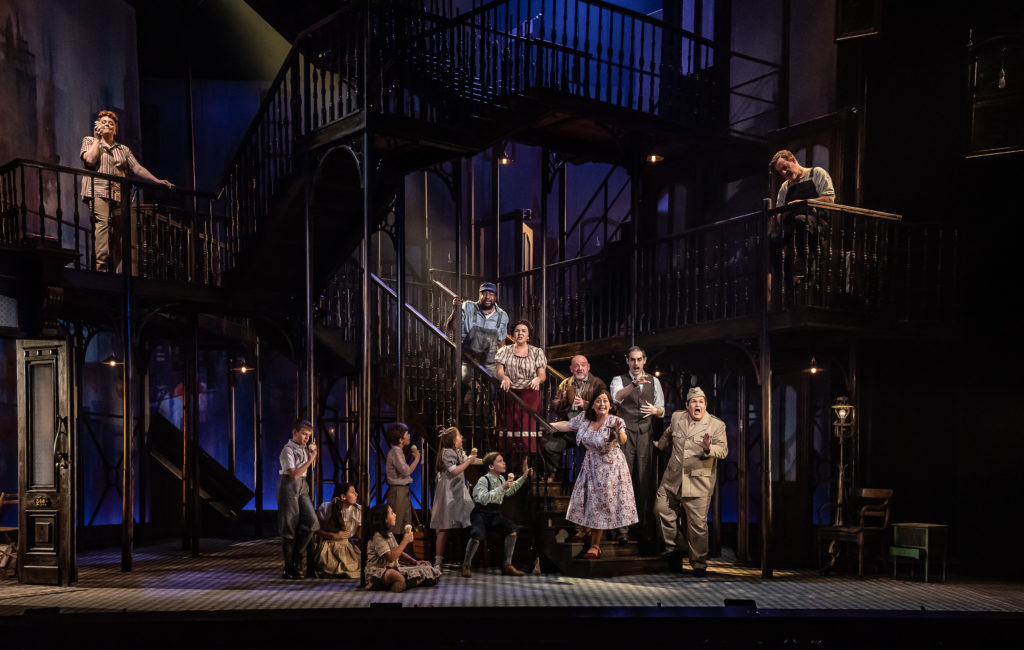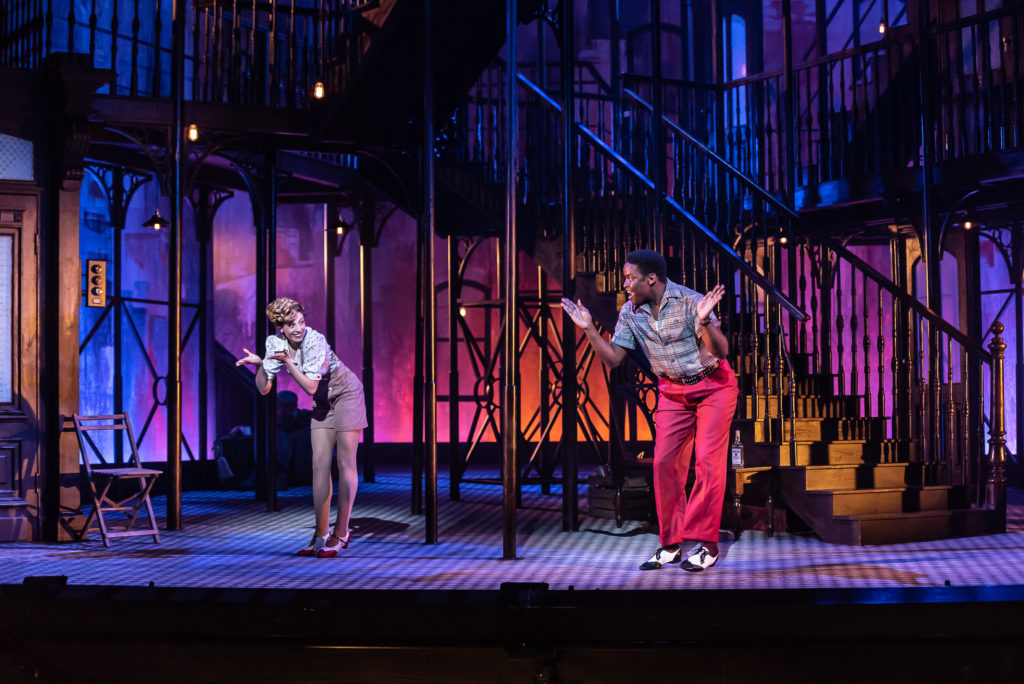
Opera North in Street Scene; Leeds Grand Theatre. Box office: 0844 848 2700 or at leedsgrandtheatre.com
KURT Weill’s “American opera” is actually a hotchpotch of styles from both sides of the pond. Opera, both serious and light, musicals, jazz, and dance all jostle in song, speech and melodrama to reflect a cosmopolitan tenement in Manhattan.
It is also an ensemble piece, with a multiplicity of small roles that offer an ideal opportunity to showcase in depth the talents of Opera North’s chorus. It requires a director with wide-reaching experience, prepared for painstaking attention to detail. Though set in stifling heat, Matthew Eberhardt’s production is so far only luke-warm; it may yet come to the boil.
Francis O’Connor’s network of metal stairs and walkways in the midst of a beehive of apartments augments the bustle of life, allowing just enough space for dance. There is only a single exit from this ghetto on ground level, compounding the claustrophobia. So far, so good.

His costumes are more debatable. Most of the cast are wearing far too much for the alleged heat – T-shirts, anyone? – nor is it likely that pantsuits would have been common currency in a down-at-heel 1940s neighbourhood.
There are two main story-lines to Elmer Price’s book, which is based on his 1929 play of the same name: the adultery and eventual death of Anna Maurrant, and the ultimately doomed, cross-faith puppy love between her daughter Rose and studious Sam Kaplan. Everything else is atmosphere.
Eberhardt does little to elucidate Anna’s dalliances with the milkman – admittedly Weill is not much help here – so that when her husband shoots them both, we are left relatively unmoved. Similarly, so little electricity illuminates the friendship between Rose and Sam that it seems bound to remain platonic from the word go.

The evening has plenty of compensations, however. There are several self-contained numbers that show Weill at his best. The Ice-Cream Sextet joyously led by Italian airman Lippo (Christopher Turner); a song-and-dance jitterbug by Rodney Vubya and Michelle Andrews; the raucous children’s game to open Act 2, superbly danced (choreography by Gary Clarke); the trenchant wit of the Nursemaids’ Lullaby (Lorna James and Hazel Croft, pushing prams) – all these are beacons of humour and entertainment.
The orchestra under James Holmes is especially alive to jazz styles and the rhythm section has a field-day. Act 2 has its longueurs after the children’s game and some of his tempos here are on the sluggish side. But colour anyway seems temporarily to drain out of the action, as if Eberhardt’s inspiration is flagging.
Giselle Allan as Anna makes the most of the work’s biggest aria, Somehow I Could Never Believe, a vivid picture of marital frustration. Less three-dimensional is Robert Hayward as her abusive husband Frank, who rarely takes leave of drink and anger, though forceful enough in Let Things Be Like They Always Was.

Gillene Butterfield is an engaging Rose, ploughing a difficult furrow between distance and engagement with Sam, and fending off the unwanted attentions of her Lothario boss (Quirijn de Lang). Sam is persuasively drawn by Alex Banfield: we feel his pangs for Rose in We’ll Go Away Together.
Among any number of good cameos, two stand out: Claire Pascoe’s Bronx-accented Mrs Jones, the ghetto gossip, and Byron Jackson as the janitor. Both are vivid and distinctive. American accents come and go, mirroring the way the action fades in and out of focus. There is much potential here. Things may well settle down as the run progresses.
Further performances on January 25, February 12, 20 and 28, then on tour.
Review by Martin Dreyer
